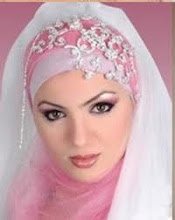Thanks if you're interested in reading my problem ini.Tidak written reason for your interest in the previous section, the important thing you need to supply energy to discuss both issues.
Well, first I have some questions about myself, sometimes I see is a child who has some different properties and characteristics of the father by his mother. It is the balance of nature orangtuanyadan some are more visible than the nature or ibunyasaja father, and some have not lowered the character of his parents. Initially I was a bit 'baffled by the results of the inspection.
However, as I learned more if I found one of the dominant nature of the child, especially perkembangaan attitude "feelings" of a father who becomes the most important factor. So the conclusion is that I get is the following:
"The attitude of the father from day to day and month after month, can affect the child's EQ."
If the father likes to show his face disgust, the child is told to observe and continued to show his face in disgust too. If the father a little jealous, if the child according to the story most people well.
Ages 0-3 months
emotional relationship with the mother of his baby has been there in the womb, according to some experts. Babies can tell when your mother in a state of stress or calm. If the mother is stressed, irritable baby usually involved, whiny, and so on). If the mother is calm and relaxed baby. If the mother during the stress of jealousy towards the baby's father (as evidenced by acts or words are negative), the automatic baby, sorry and go with stress.
Some other experts say that parents of children ', the relationship began when his father tied his mother gave him to drink, holding, hugging and soothing the baby. The quality of the father's relationship with the child's mother itersebut influence the future development of social skills. If a father's jealousy compounded by the quality of his relationship with the child, too bad he feared the child social skills.
At the age of 3 months, babies begin to get interested in social interaction face to face, especially their parents are facing. He will learn a lot through observation and imitation, to "read" and revealing emotions. This is the active phase of training the child's emotions. What if the father is often disgusted or even show his face again each time the child tested? Therefore, seeing the baby, read, and went to deal with frequent exposure disgust.
Ages 6-8 months
At this age children begin to look for new ways to express feelings such as sadness, joy, fear, anger, and so on for the environment. If you previously could not think of things or people watching, you can now move your attention without losing sight of the object or person without having to see him again. If he is happy with his red ball was going to see their parents or another person as he expressed his joy (smiling, babbling, or laughing). This is the basic ability to play and interact emotionally later. If your baby feel more sad or afraid of his father, Curt or burned fiercely jealous, always look around with an expression too. Pathetic, no?
Ages 9-12 months
In this age children begin to understand that people can share their thoughts and feelings with each other. When the parent asked the child, "another brother angry, huh?" A baby can understand that his parents were unable to read or know his mood. In other words, the baby starts understand that, by showing a certain expression, or other feelings.
If the father is jealous of the child has always been a negative sentence (indifferent, angry, angry, and so on) child may also find his father's mood was not friendly. And if the child is always in search of the father in such a situation, we tend to shy away from his father. father of this child was not considered. In fact, according to Robin Skynner, founder and lecturer at the Institute of Family Therapy, the United Kingdom, the presence of a loving father who, in addition to the child later to tackle the various problems of children and families of more than two people.

0 comments:
Post a Comment